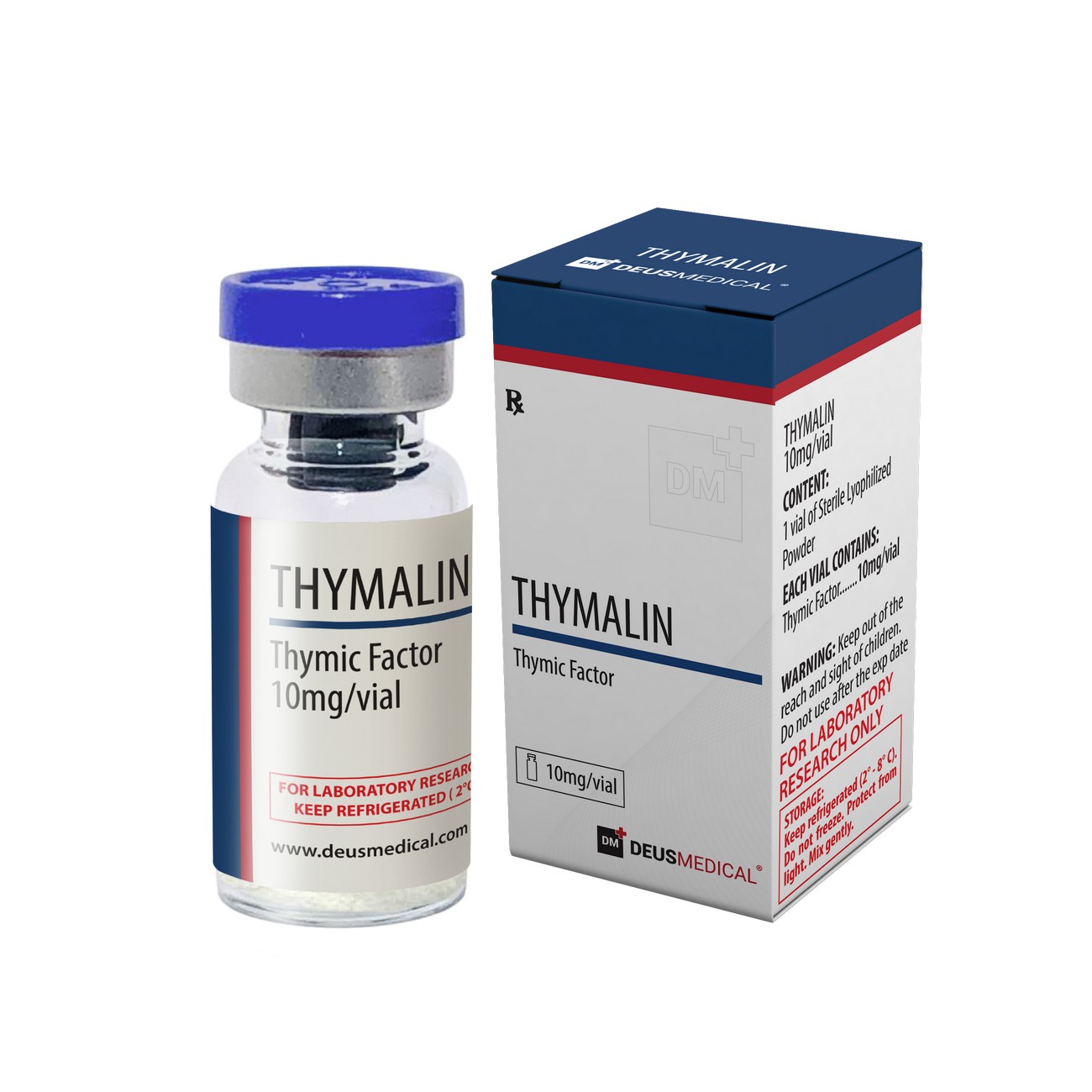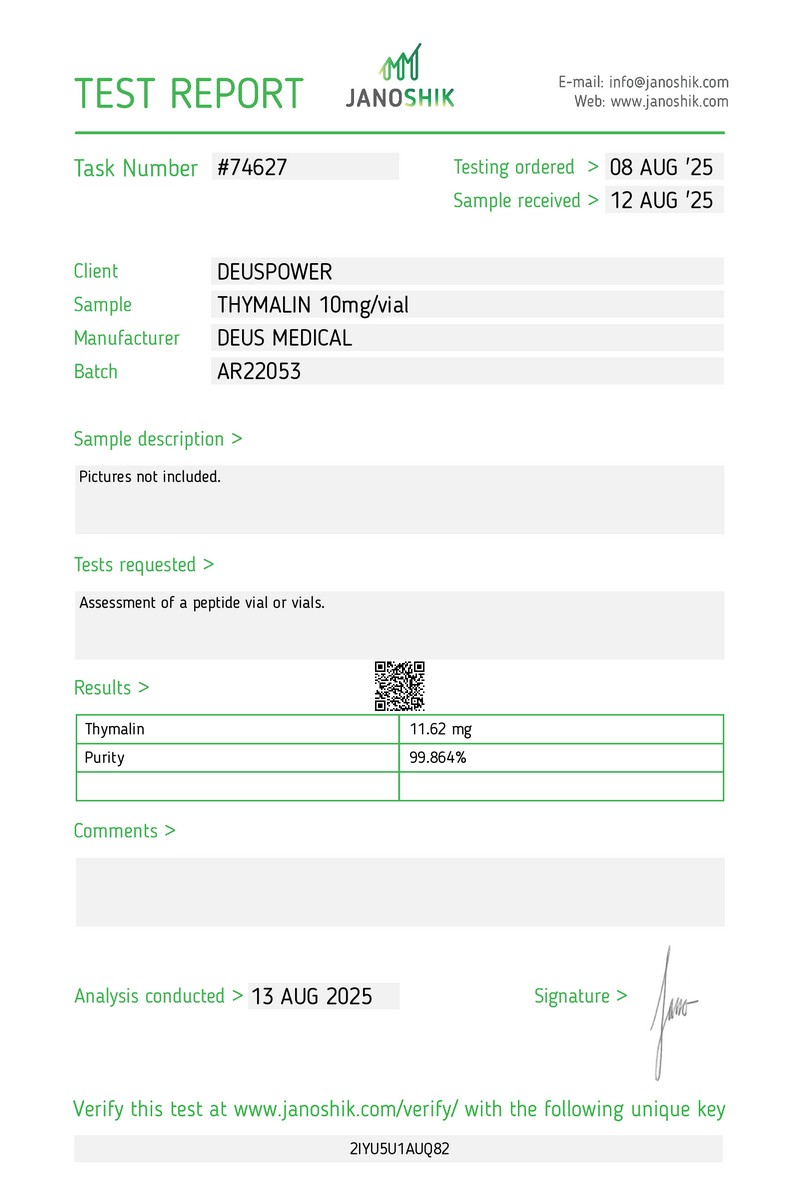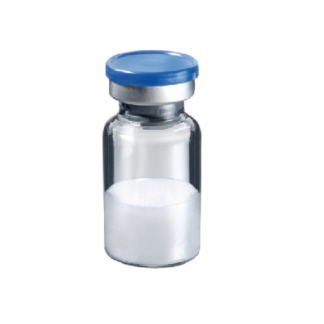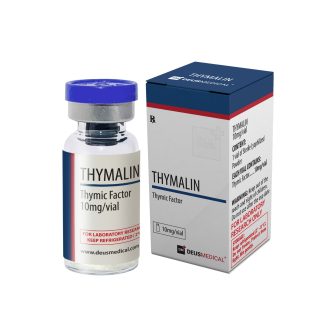Description
Thymalin is a peptide drug originally developed in the Soviet Union in the 1970s.
It is derived from calf thymus extract and belongs to a group of thymic peptides that regulate the immune system.
Key points about Thymalin:
- Origin: Natural polypeptide complex isolated from the thymus gland of young calves.
- Structure: Mixture of small peptides (including thymosin fractions and other thymic peptides).
- Medical use:
- Stimulates T-cell differentiation and function.
- Restores immune activity in cases of immunodeficiency.
- Used in the treatment of infections, chronic diseases, and during recovery from chemotherapy or radiation.
- Sometimes prescribed to elderly patients to “rejuvenate” immune function.
- Effects:
- Enhances cellular immunity.
- Normalizes white blood cell counts.
- May have anti-inflammatory and regenerative properties.
- Administration: Usually by intramuscular injection, in short courses (e.g., 5–10 days).
- Status: Still used in some Eastern European countries and Russia, but not approved in the US or Western Europe.
It is considered a bioregulator peptide—its closest well-known analogue is Thymosin Alpha-1, which is internationally recognized and used for immune therapy.








Reviews
There are no reviews yet.